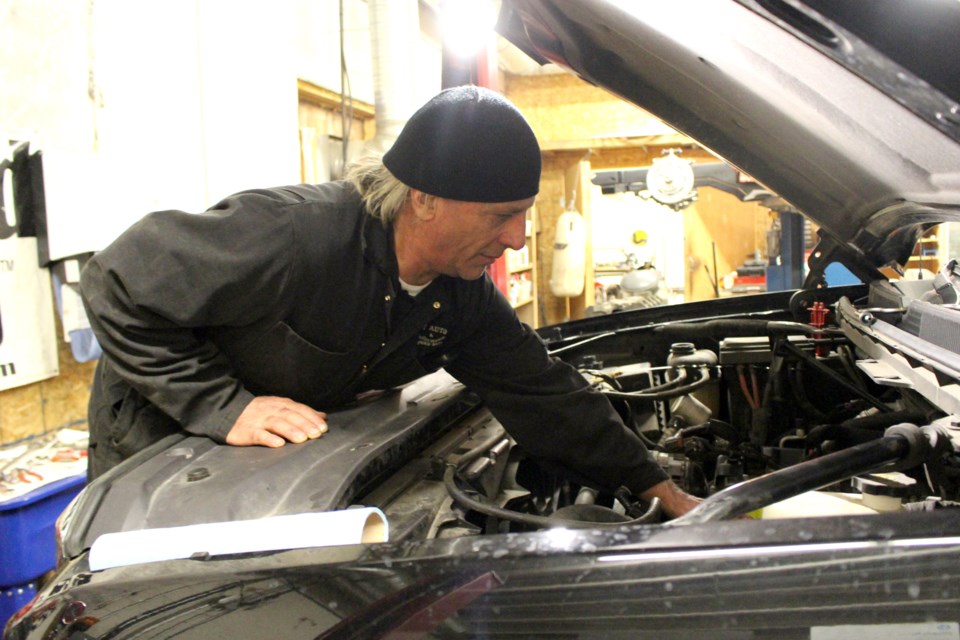BONNYVILLE – With temperatures plummeting well below zero, no one wants to be left out in the cold because their vehicle won’t start.
While there are a number of preventative measures you can take, ensuring your automobile has the block heater plugged in is one of the most crucial steps, suggests Dave Vegera, owner of DV Auto and Performance in Bonnyville.
“It keeps the engine warm so it starts in the morning for you.”
Jason Morgan, owner and manager of Bonnyville Fountain Tire, agreed.
“Don’t let it sit for long periods of time and give it a good charge in the battery, because a charged battery won’t freeze and it will start.”
Morgan and Vegera stressed the importance of regular upkeep.
“Preventative maintenance is taking it into the shop and having the mechanic check everything,” Vegera expressed.
That includes making sure your battery is ready to go no matter the season.
“Heat actually kills the battery,” noted Morgan. “Everyone blames the cold, but heat is what kills it in the summer so then they get a marginal battery and it doesn’t work properly that first cold day, it freezes and then it’s toast.”
One way to keep the battery going, Morgan said, is by purchasing a trickle charger, which prevents the battery from freezing by keeping it charged when the vehicle isn't running.
Keeping up-to-date on oil changes can also help.
“With the fresh oil in there, it starts easier and it coats better,” Morgan explained. “If you get slick, old, and sludgy oil in there it takes more to turn over, draws the battery quicker, and kills them faster.”
Vegera said synthetic oil is the way to go in the winter because it’s thinner.
“Regular oil is like molasses in the wintertime, and it’s hard for the engine to spin over when you turn it on… With synthetic oil, your car spins over easier and it just starts easier.”
Keeping your windshield wipers, brakes, automatic transmission, and anti-freeze fluids full is another means of giving your car what it needs to survive in Alberta winters.
Checking your tire pressure to make sure it’s between 30 and 35 pounds per square inch was a recommendation offered by Morgan.
“When you’re running low in tire pressure, you’re going to run into more problems because you lose about two pounds of pressure for every 10 C in temperature drop.”
Studies have also shown keeping your fuel tank full, and not letting it go below a quarter of a tank can prevent gas from freezing.
If your vehicle breaks down on the side of the road, having a safety kit in your trunk could go a long way when waiting for help.
Items suggested to keep in your car in case of an emergency include extra winter clothing, road maps, a whistle to attract attention, blankets, a first aid kit, and food that won’t spoil.
Another component mechanics recommend is a slow burning candle. It can be used to warm up the interior without having to leave the engine running.
“A nice slow burning one is awesome… If you light a candle in a vehicle you can almost sit there in a t-shirt and jeans and still be warm because it actually gives off enough heat," Morgan noted.
According to the Government of Canada, remaining calm and staying in your vehicle until help arrives is crucial, as well as not leaving the vehicle running due to the threat of carbon monoxide poisoning if the exhaust is covered by snow, putting on four-way lights to make yourself visible to passing vehicles, and leaving the interior roof light on.



